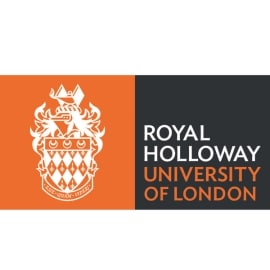Project Description
Decoherence in superconducting qubits is one of the main obstacles to realising fault-tolerant quantum computing for real-world applications. Many different physical mechanisms contribute to the decoherence of a qubit; some of which are still poorly understood. One of the main sources of noise and decoherence are material defects which are naturally present in materials but can also be introduced during the fabrication process.
Royal Holloway, University of London (RHUL) and the National Physical Laboratory (NPL) have recently developed state-of-the art immersion cooling technology for superconducting circuits, where qubits for the first time can be cooled to micro-kelvin temperatures. This technology now enables us to explore physics in a new regime and will help us understand the origin of magnetic flux noise in superconducting quantum circuits.
The successful candidate will be a joint student between RHUL and NPL.
The main aim of the project will be to design and fabricate flux-tunable superconducting one- and two- qubit circuits, and characterise these at ultra-low temperatures, with emphasis on making circuits that benefit maximally from immersion cooling.
The candidate will study the performance of these circuits by measuring the flux noise in a previously never explored parameter range, and ultimately study coupled qubit circuits and the influence of the noise on two-qubit gate operations, the key ‘logical’ building block of quantum processors.
The successful candidate will have access to state-of-the-art fabrication and measurement equipment for superconducting circuits, as well as state-of-the art cooling technology.


